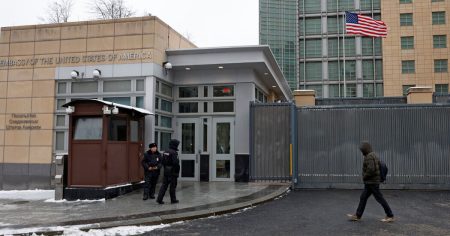In recent years, there has been a significant back-and-forth in environmental regulations in the United States as the political landscape has become more polarized. This has led to extreme shifts in policy direction, particularly in relation to climate change initiatives. Under President Barack Obama, efforts were made to reduce carbon emissions from coal plants, only to be reversed by President Donald J. Trump. Now, President Biden is once again attempting to limit pollution from coal plants, but the possibility of a future Trump administration threatens to undo these efforts.
The country’s involvement in the Paris climate accord has similarly been subject to this erratic pattern, with the U.S. joining under Obama, leaving under Trump, and rejoining under Biden. This continual shifting of environmental rules has created uncertainty for industries trying to plan for the future. The constant changes in regulations make it challenging for businesses to operate efficiently and can lead to lost investments as companies adapt to new rules only to have them changed again.
According to experts, the cost of this regulatory whiplash is substantial, potentially amounting to billions of dollars for the economy. The cycle of enacting and erasing environmental rules limits their effectiveness in protecting the environment, as industries struggle to keep up with the changing requirements. The impact of these changes is felt across various sectors, from auto manufacturing to oil and gas production, with companies unsure of what regulations to expect in the future.
The Biden administration has been actively working to strengthen environmental regulations that were rolled back under the Trump administration. This includes measures to cut greenhouse emissions, limit pollution, protect endangered species, and tighten safety controls at chemical plants. However, if a Republican administration were to take over, it is likely that these rules would once again be weakened or removed, leading to further uncertainty for businesses.
The economic impacts of this regulatory uncertainty have been studied by experts, who have found that it leads to decreased industrial production, increased unemployment, higher commodity prices, and greater consumer prices. Industries such as automakers have been particularly affected by the shifting rules on tailpipe emissions, as planning for vehicle production requires long-term investment and decision-making. The lack of regulatory clarity makes it difficult for companies to make strategic decisions and invest in new technologies.
The unpredictability of environmental regulations has implications for a wide range of industries, from auto manufacturing to oil and gas production to agriculture. The ongoing uncertainty surrounding climate policy has created challenges for businesses trying to navigate a rapidly changing regulatory landscape. Ultimately, the inconsistency in environmental policies limits the ability of businesses to plan for the future and can lead to significant economic costs and lost investments.















